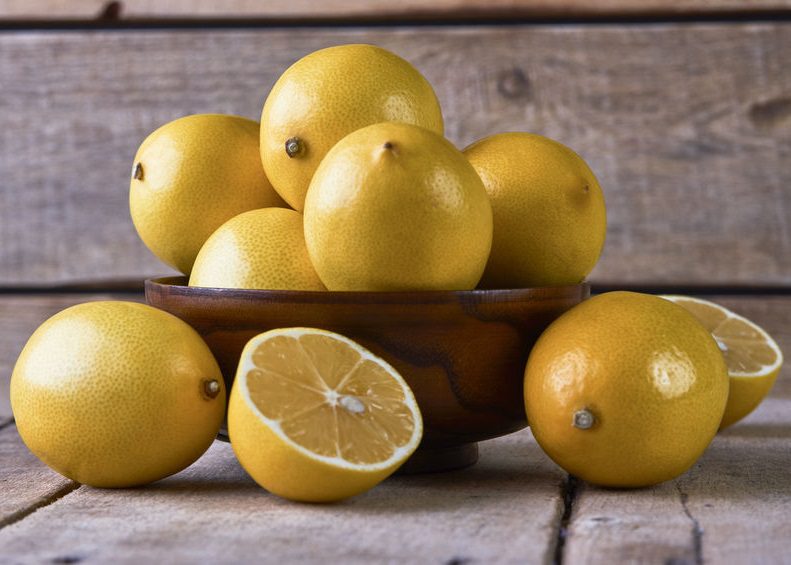A grain of truth
August 29, 2024 by DarcieBecause I am always looking for something interesting to bring to our Members’ attention, I visit a lot of websites and ingest a lot of social media. The signal-to-noise ratio is quite low, because there is an astonishing amount of inconsequential and frankly boring food news, trends, and stories floating around. Content creators grasp at flimsy ideas and writers create a story around a lukewarm take, such as this little article from Food and Wine about the viral “hack” of using lemons to clean your dishwasher. Since I don’t have the Tickety-Tok, I remain blissfully unaware of a trend involving wannabe influencers earnestly suggesting that you can eliminate hard water deposits by flicking a spent lemon into the dishwasher.

The concept behind this “hack” contains a grain of truth. Most hard water deposits are created from alkaline minerals, therefore an acidic component will help dissolve them. However, one spent lemon won’t contain enough acid to produce a large effect (it will smell nice though). But we don’t have to look for a “hack” to address the issue of hard water deposits – there’s an entire industry built around this problem! You can filter your water, use a softener, or purchase wash additives to add to the dishwasher cycle.
That’s basically the takeaway from the F&W article, although the point could have been made more succinctly. Lest I sound like an angry old person yelling at kids to get off my lawn, please know that I am not knocking F&W, the writer, or even the TikTok trend. I believe these stories are a natural byproduct of search engine optimization and social media algorithms in the digital age. If you think about it, it’s similar to the lengthy posts that people complain about at the beginning of a recipe blog. “Just publish the recipe, I don’t want 27 paragraphs recounting the story that led up to it,” grumble the folks that clicked on the link from the search engine, not understanding that it was the 27 paragraphs that got this post ranked high enough in the search engine to be clicked on in the first place. It’s an odd dilemma: if the blogger didn’t include the SEO phases in those lengthy intro paragraphs and just published the recipe, the searcher wouldn’t be able to find it. And so it goes.
Returning to the TikTok trend at the heart of the story, I think you can spot the kernel of truth in this and almost every viral trend. As long as you don’t fall prey to believing that “one weird trick” will solve every problem, there are interesting tidbits of information floating around; you just have to sift through the noise. I capitalized on a video touting the wonders of using vinegar in the laundry. While it didn’t remove every stain or eliminate all odors as claimed, adding some to the rinse cycle did freshen the laundry without adding an unwanted scent.
Categories
- All Posts (6940)
- Antipasto (2135)
- Author Articles (247)
- Book News (935)
- Cookbook Giveaways (983)
- Cookbook Lovers (257)
- Cooking Tips (109)
- Culinary News (299)
- Food Biz People (552)
- Food Online (791)
- Holidays & Celebrations (272)
- New Cookbooks (149)
- Recipes (1500)
- Shelf Life With Susie (231)
- What's New on EYB (133)
Archives
Latest Comments
- Atroyer7 on Danube Cookbook Review and Giveaway
- demomcook on What foods do you look forward to the most for each season?
- demomcook on Danube Cookbook Review and Giveaway
- Darcie on How cookbooks can help build resilience
- mholson3 on Danube Cookbook Review and Giveaway
- Rinshin on How cookbooks can help build resilience
- sarahawker on Danube Cookbook Review and Giveaway
- Sand9 on Danube Cookbook Review and Giveaway
- hankintoby29 on Heritage Cookies of the Mediterranean World – Cookbook Giveaway
- WBB613 on Feasts of Good Fortune Cookbook Giveaway